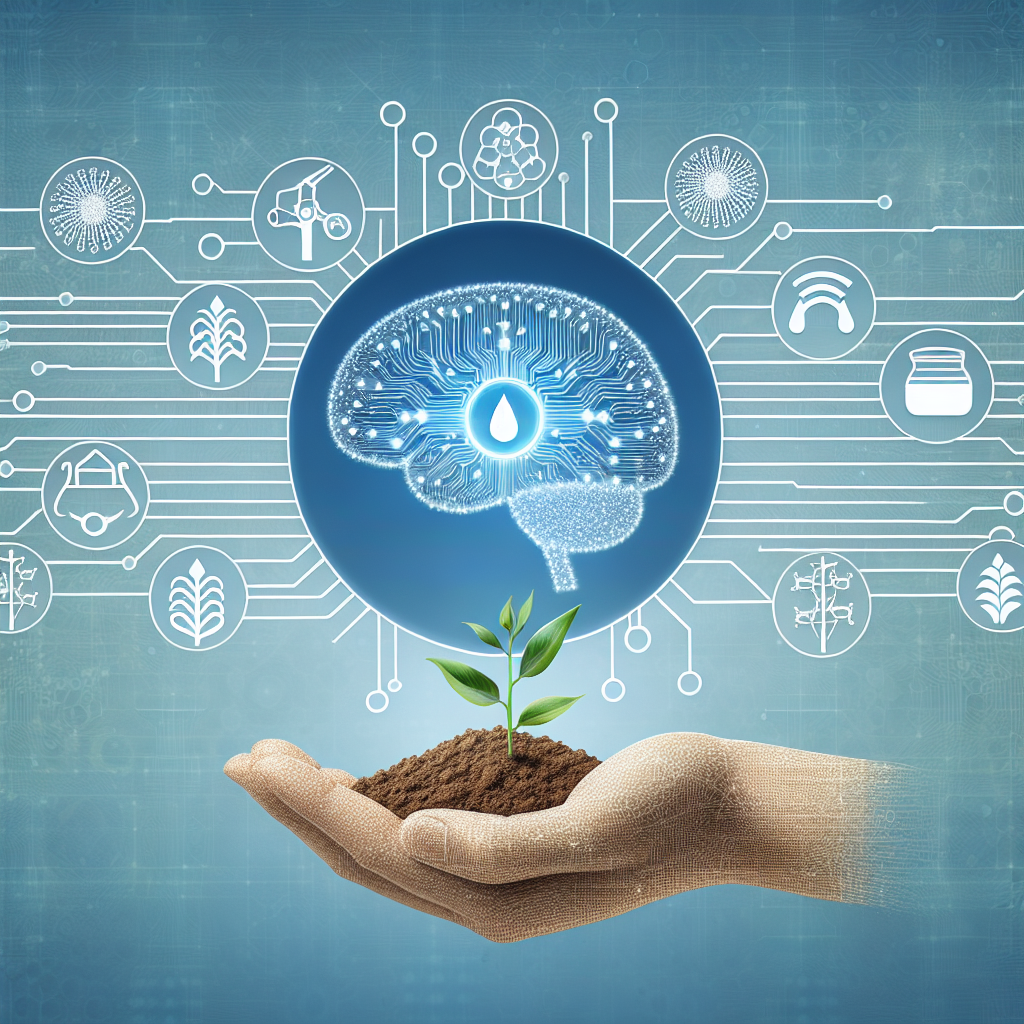AI-Driven Solutions for Sustainable Water Management in Agriculture
Water is one of the most essential resources for agriculture, as it is crucial for the growth and development of crops. However, with the increasing global population and the effects of climate change, water scarcity has become a major concern for farmers around the world. In order to address this issue, there has been a growing interest in using artificial intelligence (AI) technology to improve water management practices in agriculture.
AI-driven solutions have the potential to revolutionize the way water is used in agriculture, by providing real-time data and insights that can help farmers make more informed decisions about when and how much water to use. These solutions can help optimize water usage, reduce waste, and improve the overall sustainability of farming practices. In this article, we will explore some of the ways in which AI-driven solutions are being used to address water management in agriculture, and the benefits they can bring to farmers and the environment.
Monitoring and Predicting Water Usage
One of the key benefits of AI in water management is its ability to monitor and predict water usage on farms. AI-powered sensors can be installed in fields to collect data on soil moisture levels, weather conditions, and crop growth, allowing farmers to better understand how much water is needed at any given time. By analyzing this data, AI algorithms can predict future water requirements and help farmers optimize their irrigation schedules.
For example, a farmer using AI-driven water management system can receive alerts when soil moisture levels are low, indicating that crops need to be watered. The system can also predict when rain is expected, allowing farmers to adjust their irrigation schedules accordingly. By using AI to monitor and predict water usage, farmers can reduce water waste, improve crop yields, and save money on water bills.
Optimizing Irrigation Systems
Another way in which AI can improve water management in agriculture is by optimizing irrigation systems. Traditional irrigation methods can be inefficient and wasteful, as they often rely on fixed schedules or manual adjustments. AI-driven irrigation systems, on the other hand, can adjust water flow rates and timing based on real-time data, such as soil moisture levels and weather conditions.
AI algorithms can also take into account factors such as crop type, stage of growth, and field topography to determine the optimal amount of water to apply. This can help farmers avoid over-irrigation, which can lead to waterlogging and nutrient leaching, as well as under-irrigation, which can result in crop stress and reduced yields. By optimizing irrigation systems with AI, farmers can improve water efficiency, reduce water waste, and increase crop productivity.
Monitoring Water Quality
In addition to monitoring water usage, AI can also be used to monitor water quality on farms. Contaminated water can have negative impacts on crop health and productivity, as well as on human health if consumed. AI-powered sensors can be used to detect pollutants, such as pesticides, fertilizers, and pathogens, in irrigation water sources.
By continuously monitoring water quality, farmers can take immediate action to address any issues that arise, such as adjusting irrigation practices, using alternative water sources, or treating contaminated water. This can help prevent crop damage, reduce environmental pollution, and ensure the safety of food products. AI-driven water quality monitoring systems can also provide valuable data for regulatory compliance and certification purposes.
FAQs
Q: What are the benefits of using AI-driven solutions for water management in agriculture?
A: AI-driven solutions can help farmers optimize water usage, reduce waste, improve crop yields, and save money on water bills. By monitoring and predicting water usage, optimizing irrigation systems, and monitoring water quality, AI can help farmers make more informed decisions about water management practices.
Q: How can farmers implement AI-driven solutions on their farms?
A: Farmers can implement AI-driven solutions by installing sensors and other monitoring devices in their fields, connecting these devices to AI algorithms and software platforms, and using the data and insights generated to make better decisions about water management. There are a growing number of companies that offer AI-powered water management solutions for agriculture.
Q: Are AI-driven solutions cost-effective for farmers?
A: While there may be upfront costs associated with implementing AI-driven solutions, such as purchasing sensors and software, the long-term benefits of improved water efficiency, increased crop yields, and reduced water bills can outweigh these costs. Many farmers are finding that investing in AI technology for water management is a smart decision for the future sustainability of their farms.
Q: Can AI-driven solutions help address water scarcity in agriculture?
A: Yes, AI-driven solutions have the potential to help address water scarcity in agriculture by improving water efficiency, reducing waste, and optimizing irrigation practices. By using AI technology to monitor and manage water resources more effectively, farmers can make better use of limited water supplies and ensure the sustainability of their operations.
In conclusion, AI-driven solutions have the potential to transform water management practices in agriculture, by providing real-time data and insights that can help farmers optimize water usage, reduce waste, and improve sustainability. By monitoring and predicting water usage, optimizing irrigation systems, and monitoring water quality, AI can help farmers make more informed decisions about how to manage their water resources more efficiently. As water scarcity continues to be a major challenge for agriculture, AI technology offers a promising solution for ensuring the long-term sustainability of farming practices.

